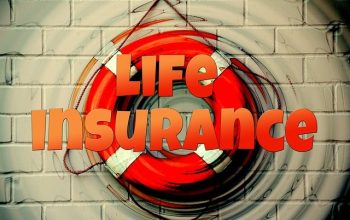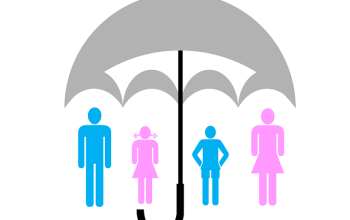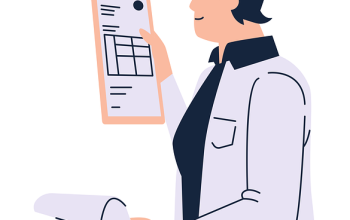General Liability Insurance is a fundamental safeguard for businesses, covering third-party claims involving bodily injury, property damage, and non-product related personal or advertising injuries. It's particularly crucial for protecting against risks associated with premises or services provided by a business. Professional Liability Insurance, also known as Errors and Omissions Insurance, is essential for professionals to cover alleged negligence or errors in their professional services. Small businesses can tailor Business Liability Coverage to meet their unique needs, which includes Public Liability Insurance for third-party injuries or damages on business premises, and Product Liability Insurance to protect against claims related to product defects post-sale. Both Small Business Insurance packages and Commercial Liability Insurance encompass these coverages to ensure businesses are protected from financial loss due to legal claims in competitive and uncertain markets. Understanding the distinctions between General, Professional, and Product Liability Insurance is critical for effective risk management and maintaining business stability and operational resilience.
Liability insurance stands as a critical shield for businesses, safeguarding against the financial impact of legal claims due to third-party injuries or property damages. Among the various types available, General Liability Insurance serves as a foundational defense mechanism, covering a wide array of risks encountered in everyday business operations. For professionals who offer advice or services, Professional Liability Insurance, or Errors and Omissions Insurance, is indispensable, guarding their expertise and professional standing against allegations of mistakes or oversights. Small businesses, in particular, can tailor their protection with Business Liability Coverage, ensuring they are prepared for any liabilities that may arise unexpectedly. Meanwhile, Public Liability Insurance and Product Liability Insurance are pivotal for manufacturers and retailers, offering robust coverage against claims linked to product malfunctions or inherent defects. This article delves into these essential forms of insurance, providing insights into how they contribute to a comprehensive risk management strategy for businesses of all sizes.
- Navigating Business Risks: The Role of General Liability Insurance
- Professional Liability Insurance: Safeguarding Expertise and Reputation
- Tailored Protection for Small Businesses with Business Liability Coverage
- Understanding Public and Product Liability Insurance for Manufacturers and Retailers
- Comprehensive Risk Management through Commercial Liability Insurance Insights
Navigating Business Risks: The Role of General Liability Insurance
General Liability Insurance serves as a critical shield for businesses, safeguarding against third-party claims of bodily injury, property damage, and personal and advertising injury. This type of insurance is pivotal in mitigating risks that are not directly related to the products a company sells but rather to the premises it occupies or the services it provides. For instance, if a customer slips and falls on business premises, general liability insurance can provide financial protection against legal action and associated costs. It covers a wide array of exposures, including libel, slander, and copyright infringement claims. This comprehensive coverage is essential for various industries, from retail to service providers, ensuring they can operate without the fear of crippling financial consequences due to unforeseen incidents.
For professionals who offer specialized services, Professional Liability Insurance, often termed Errors and Omissions Insurance, is indispensable. This insurance is tailored to cover claims, suits, and defense costs arising from alleged negligence or errors in professional services. Unlike General Liability Insurance, this policy addresses the unique risks associated with a profession’s advice, decisions, and service delivery. Small businesses, in particular, often require Business Liability Coverage, which is a customizable form of protection that can be adapted to their specific needs. This coverage ensures that even the most modest enterprises are not left vulnerable to the financial repercussions of liability claims. Meanwhile, Product Liability Insurance is a specialized form of Commercial Liability Insurance designed for manufacturers and retailers. It offers a safety net against claims alleging product defects that may lead to harm or damage. Understanding and securing the right combination of these insurance types is crucial for robust risk management strategies, allowing businesses to navigate the complex landscape of potential liabilities with greater confidence and security.
Professional Liability Insurance: Safeguarding Expertise and Reputation
In the realm of professional services, expertise and reputation are the cornerstones of a thriving business. Professional Liability Insurance, often referred to as Errors and Omissions Insurance, is a critical safeguard for professionals across various industries, including medical practitioners, lawyers, accountants, and consultants. This specialized form of coverage shields against claims alleging negligence or professional errors that result in financial loss for clients. It is particularly important for small businesses where a single lawsuit could potentially jeopardize the company’s finances and hard-earned reputation.
This insurance acts as a safety net, ensuring that unexpected legal challenges do not lead to catastrophic financial consequences. It covers costs associated with claims, defenses, and any resulting settlements or judgments, allowing professionals to focus on their expertise without the added burden of litigation concerns. Additionally, it provides assurance to clients that their service provider has a level of protection in place, which can enhance trust and client relationships. In conjunction with Professional Liability Insurance, businesses should also consider General Liability Insurance, Business Liability Coverage, and Product Liability Insurance to address broader risks such as property damage, bodily injury claims, and product-related liabilities. For a comprehensive risk management strategy, small businesses should evaluate their specific needs and consult with insurance professionals to tailor a policy that encompasses all necessary forms of Commercial Liability Insurance, thereby safeguarding their expertise and reputation in an ever-evolving business landscape.
Tailored Protection for Small Businesses with Business Liability Coverage
For small businesses, the risk landscape can be as varied and complex as the products or services they offer. Tailored Protection for Small Businesses with Business Liability Coverage is not just a prudent choice; it’s a critical investment in the business’s future. General Liability Insurance serves as a foundational shield against claims of bodily injury, property damage, and personal and advertising injury. This broad coverage ensures that small businesses are protected from liabilities arising from everyday operations, such as customer slips and falls on premises or accidental damage to third-party property.
Furthermore, Professional Liability Insurance, or Errors and Omissions Insurance, is specifically designed for professionals who provide advice, consultancy, or services. It safeguards against claims of negligence or professional errors that result in financial loss for clients. This insurance is indispensable for small businesses like law firms, IT service providers, and marketing agencies, where the stakes of making a mistake can be high. Additionally, Product Liability Insurance offers essential protection for manufacturers and retailers by covering claims related to products that may malfunction or cause harm post-purchase. Small Business Insurance packages often include a combination of these coverages, offering a comprehensive safety net that addresses both General Liability and Product Liability risks. Commercial Liability Insurance further extends this protection, ensuring that the unique liabilities faced by small businesses are adequately covered, thereby allowing them to operate with confidence and security in an unpredictable business environment.
Understanding Public and Product Liability Insurance for Manufacturers and Retailers
In today’s market, manufacturers and retailers face a multitude of risks that can jeopardize their operations and financial stability. Public Liability Insurance is a critical component for businesses interacting with the public, offering protection against claims arising from bodily injury or property damage caused by their operations. This type of coverage is particularly important for manufacturers as it safeguards against liability if a product causes harm post-purchase, ensuring that one-time incidents don’t lead to long-term financial repercussions. For instance, if a manufacturer’s product malfunctions and injures a consumer, Public Liability Insurance can cover the associated costs of legal defense and any compensation that may be awarded to the injured party.
Furthermore, Product Liability Insurance is a specialized form of Commercial Liability Insurance tailored for manufacturers and retailers. It addresses the unique risks associated with the products themselves, such as defects in manufacturing or design that lead to consumer harm. This insurance is indispensable for businesses dealing with goods that could pose a risk, whether due to inherent dangers or unforeseen consequences of use. It extends beyond the scope of General Liability Insurance by covering specific claims related to product defects or failures to warn about potential risks associated with the product. For small businesses, securing a comprehensive Business Liability Coverage plan that includes both Public and Product Liability Insurance can be the difference between business continuity and financial distress in the event of an unforeseen incident. Professional Liability Insurance, also known as Errors and Omissions Insurance, while different from these forms, complements them by protecting against claims of professional negligence, which is vital for service-oriented companies but less relevant for manufacturers and retailers focused on tangible products. Understanding the nuances between these types of insurance is key for manufacturers and retailers to ensure they are adequately protected from the myriad risks associated with their industries.
Comprehensive Risk Management through Commercial Liability Insurance Insights
In the realm of business operations, Commercial Liability Insurance stands as a bulwark against the financial repercussions of legal claims. General Liability Insurance is a cornerstone for this protection, offering broad coverage that shields businesses from liabilities stemming from bodily injuries, property damage, and personal and advertising injury claims. This type of insurance is critical for safeguarding a company’s assets and ensuring its long-term viability in the face of such risks associated with daily operations. For professionals who provide expert advice or services, Professional Liability Insurance, also known as Errors and Omissions Insurance, serves as a safety net against claims alleging professional negligence or substandard service delivery. This specialized coverage addresses the unique exposures faced by various professionals, from consultants to healthcare providers.
Small businesses, often with limited resources to navigate uncertainties, particularly benefit from tailored Business Liability Coverage. This insurance is designed to meet their specific needs, offering protection against a wide array of liabilities that could arise from their day-to-day activities. Public Liability Insurance, an integral component of Small Business Insurance, provides coverage for claims arising from third-party injuries or damages on rented or owned business premises. Moreover, Product Liability Insurance is essential for manufacturers and retailers who deal with physical products. It safeguards against claims related to product defects that may cause harm to users, ensuring that businesses are not held financially responsible for unforeseen consequences of their products. By securing comprehensive coverage through Commercial Liability Insurance, businesses can implement a robust risk management strategy, mitigating potential losses and maintaining their operational integrity in an uncertain business environment. Understanding the nuances of these insurance types is indispensable for a thorough approach to protecting one’s business interests.
In conclusion, the robust spectrum of liability insurance products—General Liability Insurance, Professional Liability Insurance, and tailored Small Business Insurance coverage, including Public and Product Liability Insurance—serves as a critical safety net for businesses of all sizes. Commercial Liability Insurance, encompassing these various forms, is indispensable in managing risks associated with modern business operations. By understanding the nuances of each type and ensuring appropriate coverage, companies can navigate the complex landscape of potential liabilities with confidence. It is through this informed approach that businesses not only safeguard their financial health but also preserve their hard-earned reputation and operational continuity. Thus, integrating these liability insurance solutions into one’s business strategy is not just prudent—it is an essential component of successful risk management in today’s marketplace.



